Getting kids off the streets one wave at a time
A small team of surfers with big hearts has helped countless impoverished children in Durban find a sense of comfort and purpose in life. But the demand is overwhelming, they say.
Author:
11 April 2022

Ntando Msibi is a short, toned dude with a smile so generous and a passion so pure that his face blossoms when he talks about waves and how surfing transformed a lost child into a prince among men. Dressed in board shorts and a vest, he holds court on a sofa in Surf HQ, the surf shop where he works.
It is situated in Durban’s often seedy old motor town district, a few streets back from the beach, and not far from where Msibi, 24, met Sandile Mqadi and Tom Hewitt back when he was a nine-year-old living on the streets.
Little distinguished Msibi from today’s street children who dodge between traffic begging while some cast an eye over the contents of passing cars, filching wallets or cellphones in smash-and-grabs. Even worse, some children who are forced to make it on the streets end up as drug addicts involved in violent crime to sustain their habit.
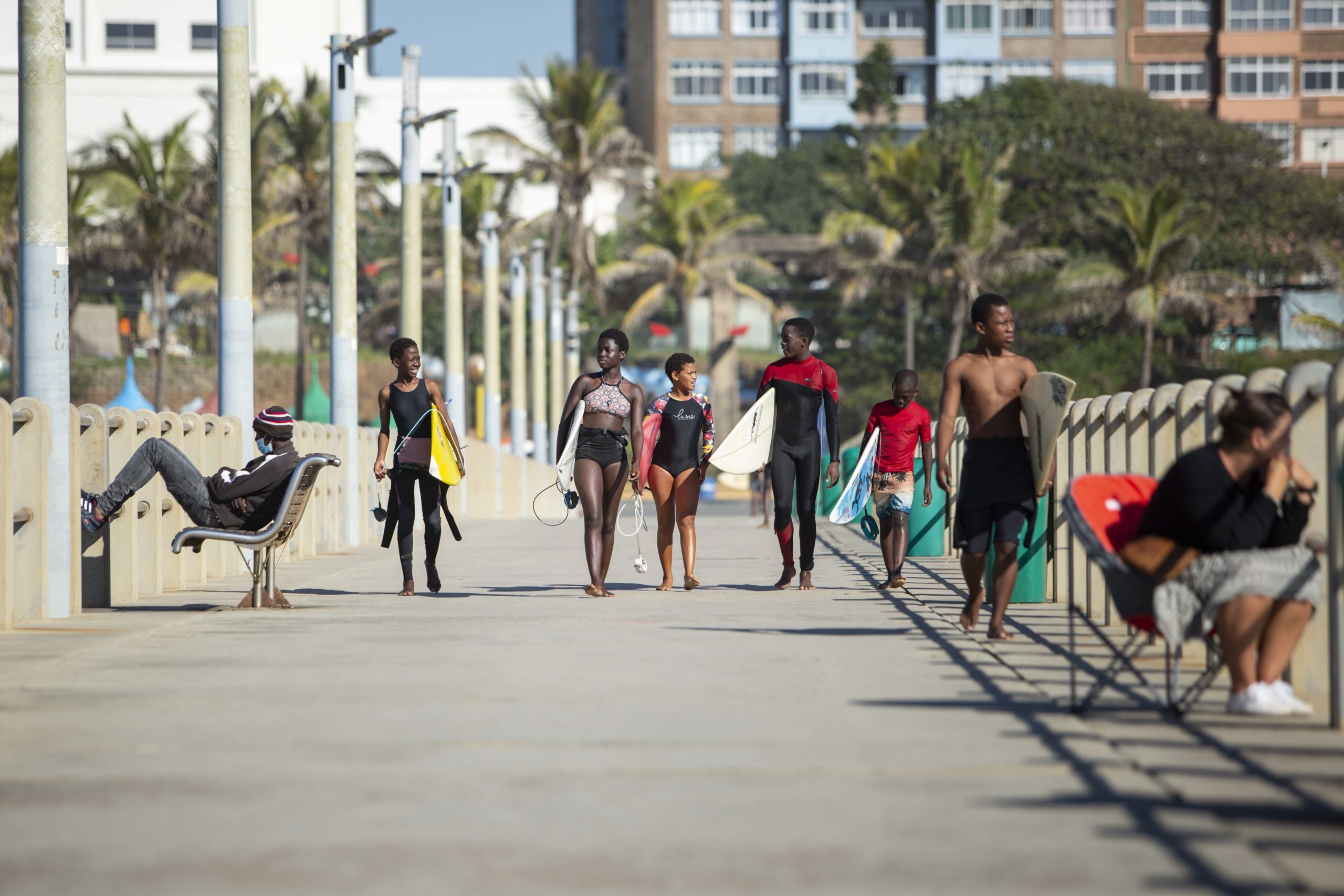
“Yoh, man, my life could have been different if I didn’t get on the board,” says Msibi, who left home in KwaMashu to live on the beach after his mother died. He became curious about Hewitt and Mqadi’s outreach project, Surfers Not Street Children, and started attending its educational programme. The non-governmental organisation (NGO) also fed and clothed him, and it soon became apparent that he was a natural surfer.
Hewitt came to South Africa as an anti-apartheid activist and has worked with street children since. He teamed up with co-director Mqadi in 2008. Together they have helped change the city’s attitude to street children, who were often rounded up by metro police officers and dropped on the outskirts of town in a bid to hide the “problem” or “fix” it with brute force.
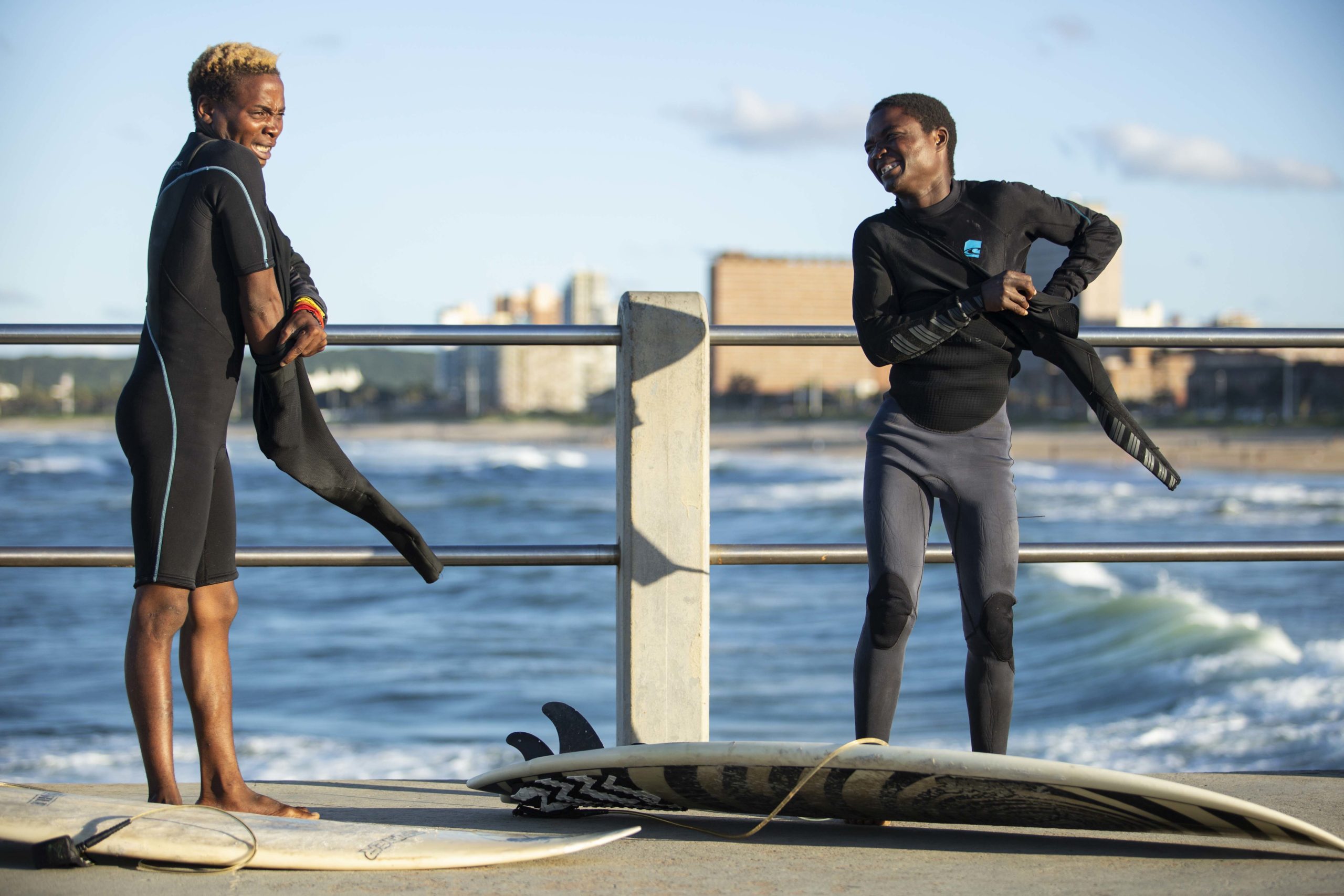
The wow factor
Because Mqadi and Hewitt are keen surfers, the sea is central to their NGO’s programmes, though not exclusively so. Hewitt recalls being out surfing when a street child watching him from a nearby pier couldn’t contain himself and dove into the water and demanded a ride on his board. After belly-boarding to shore, the child sprinted across the beach and raced to the pier for another wave.
The high-intensity adrenalin that surfing offers is alluring to children used to edgy street life. It’s an alternative rush, says Mqadi, a veteran surfer. “You can see the wow in their faces.” Especially, he adds, in the faces of children from families that are mired in poverty or have drug use and alcohol issues.
“They might be humiliated because of where they come from, but you can’t see that in the ocean. The ocean is a big equaliser. It can be scary but it is a tool to calm everyone down. You are not rich or poor in the ocean. It is you and the waves.”
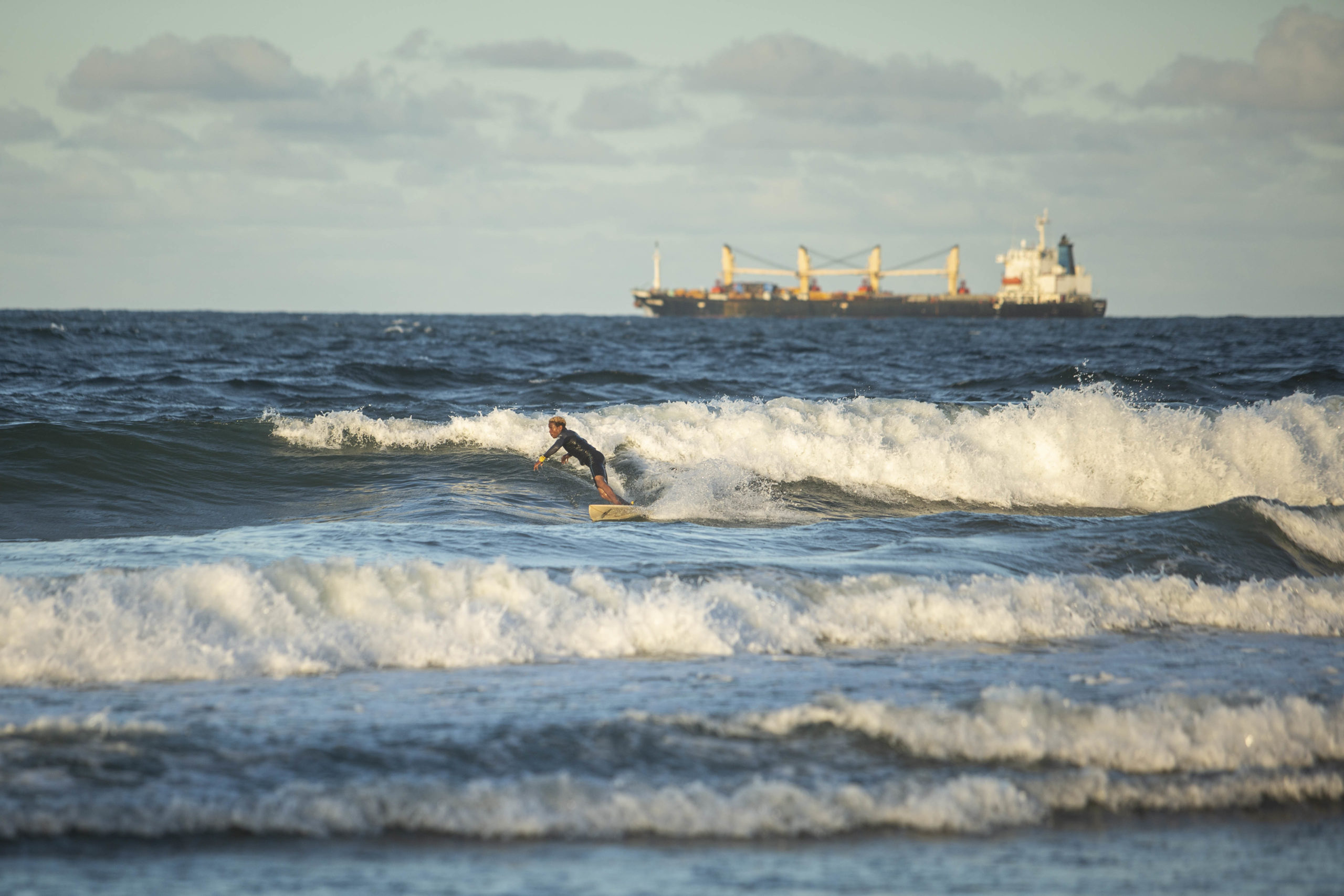
Msibi raves about the rush too. “Damn, man, it’s like being rich but in a humble way. Riding the waves is like winning the lottery all the time. You feel better and better out there. It’s like, man, the feeling doesn’t have a name.”
Msibi no longer surfs competitively and instead uses his status to inspire others. “Most surfers are about community. Older guys help younger guys. They hook them up with boards and encourage them. This helping and sharing motivates a lot of younger guys.
“I see young guys from the Point who aren’t wealthy, but they have a good head for life and they are doing well in the waves. I want them to say, ‘I can do well like Ntando Msibi, because he also came from the projects but he became a biggie.’”
Mqadi’s life was transformed by surfing too. From humble beginnings on the KwaZulu-Natal South Coast, he has travelled the world visiting countries like El Salvador and Japan to judge surfing contests. “Surfing is not just cool. It teaches discipline and respect. Our programme is not just for surfers. It gives children a framework for growth and an identity.”
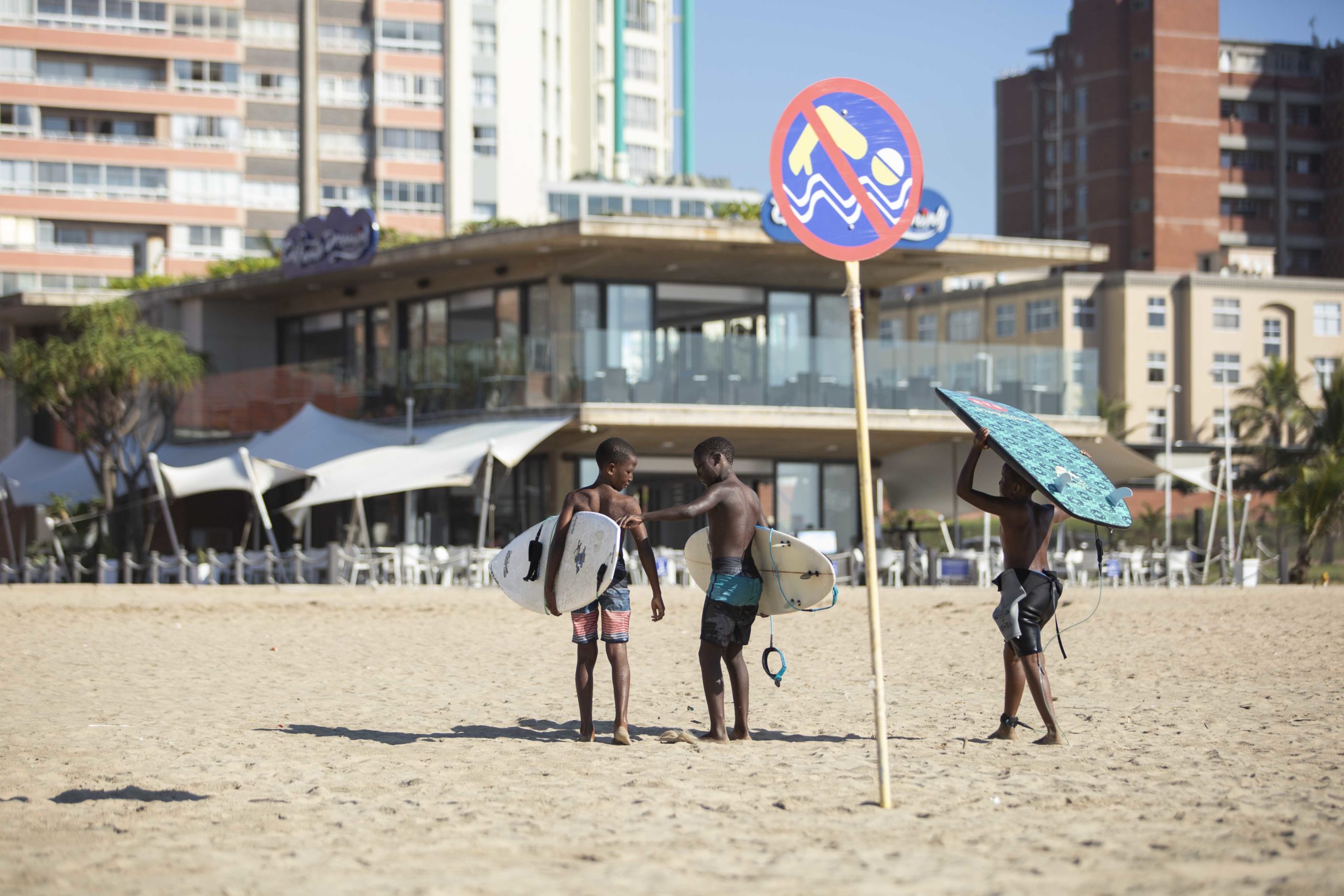
What’s in a name
The NGO, which used to be called Durban Street Team when it was founded in 1998, got its name after surfwear company O’Neill donated dozens of little wetsuits that were distributed to street children. It was at the peak of summer and scorching hot, yet the children marched down to the sea, proud as punch in their wetsuits. According to Mqadi, when they were quizzed about wearing wetsuits in the heat, they said, “When we are in our wetsuits we are surfers, not street children.”
The programme has won wide acclaim for its simplicity and how it has taken root so naturally in Durban. Its “surf house” is not far from Surf HQ and occupies the top floor of a two-storey commercial building. It has a lounge adorned with surf memorabilia and a kitchen, offices and a computer lab.
About 120 street children a month come to the facility to do their homework under supervision before surfing in the afternoon, although surfing is not compulsory. The NGO runs a nutrition programme and the children have access to social workers. Increasingly, fewer of the children cared for are orphans; instead, they come from shelters where they live with their families.
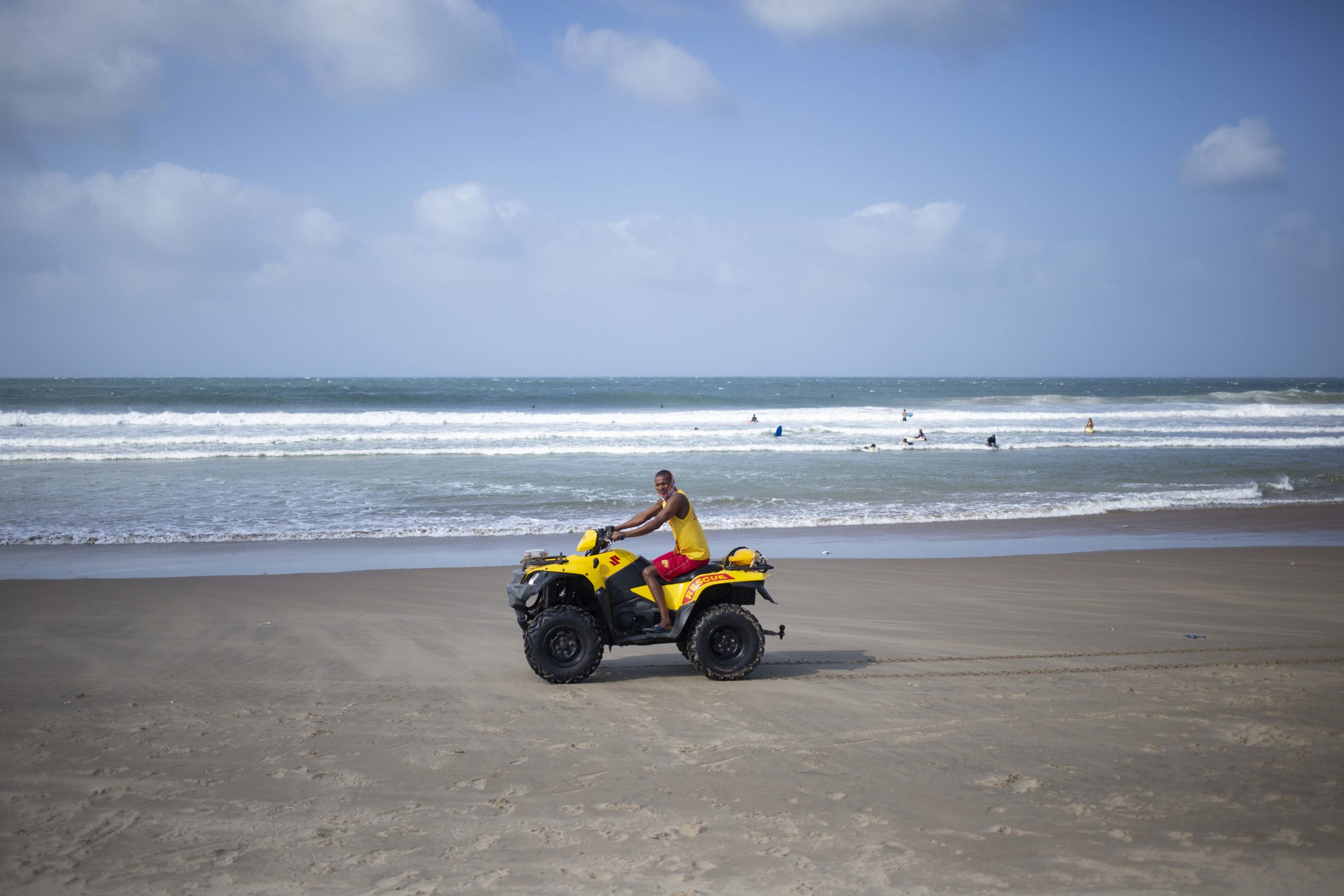
The shelters can have the same hazards as the streets, just under a roof. The vulnerabilities are the same. Sometimes there is permanent detachment from parents. Often the children’s parents are addicts or alcoholics. Not all families in shelters have alcohol or drug issues, though. They are simply impoverished and struggling.
The NGO’s first prize is to work with the parents and keep families together, providing support and reducing the amount of time children spend at the shelters. They feed and care for the children when parents might not always be able to do so. The better the framework they have, the less likely they are to get involved in crime. The mother of one of the young surfers works as a waitress six days a week and she was horrified by what her son was getting up to when she was working, but she didn’t have much power to change that.
Only a few children become pro surfers like Msibi. After he won a host of local surfing contests, he represented South Africa at the world championships in California in 2015 and placed 17th. But the impact he has as a role model these days is phenomenal. Msibi, says Mqadi, is a local hero. And Jean-Marc Tostee, who employs him at Surf HQ, quips that next to South African champion Jordy Smith, Msibi is “the most connected surfer I know”.
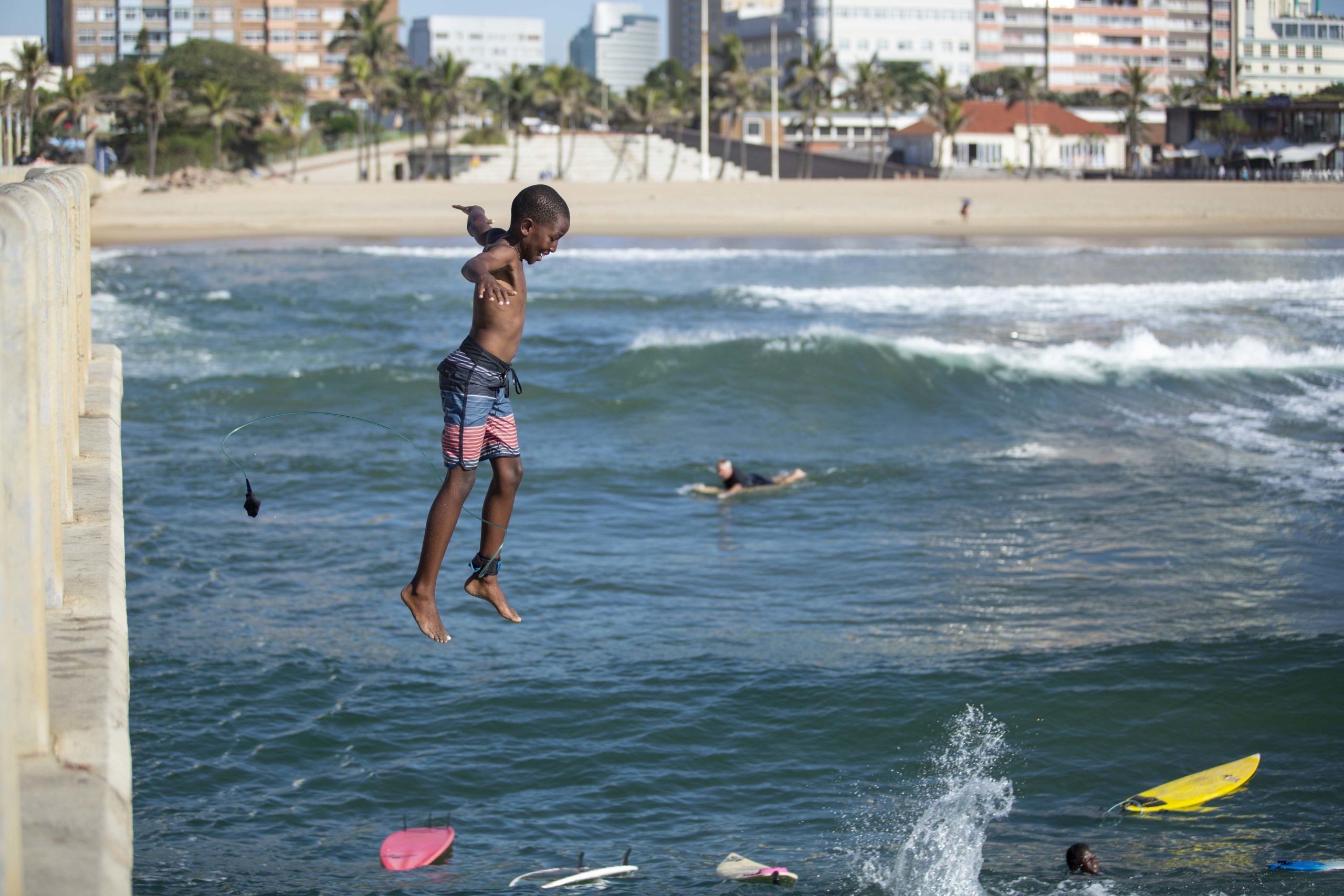
Tea with royalty
Msibi laughs as Tostee prompts him to tell the story of when he had tea at Buckingham Palace in London. Hewitt’s work earned him a Member of the British Empire award from Queen Elizabeth II in 2011 and saw him befriend Prince Harry, hence Msibi’s visit.
The young surfer relates the experience with glee. “Yoh bru, it was so weird because I didn’t really know anything about the prince or the queen. Tom showed me on Youtube and I was like, holy shit! It was mind-blowing.”
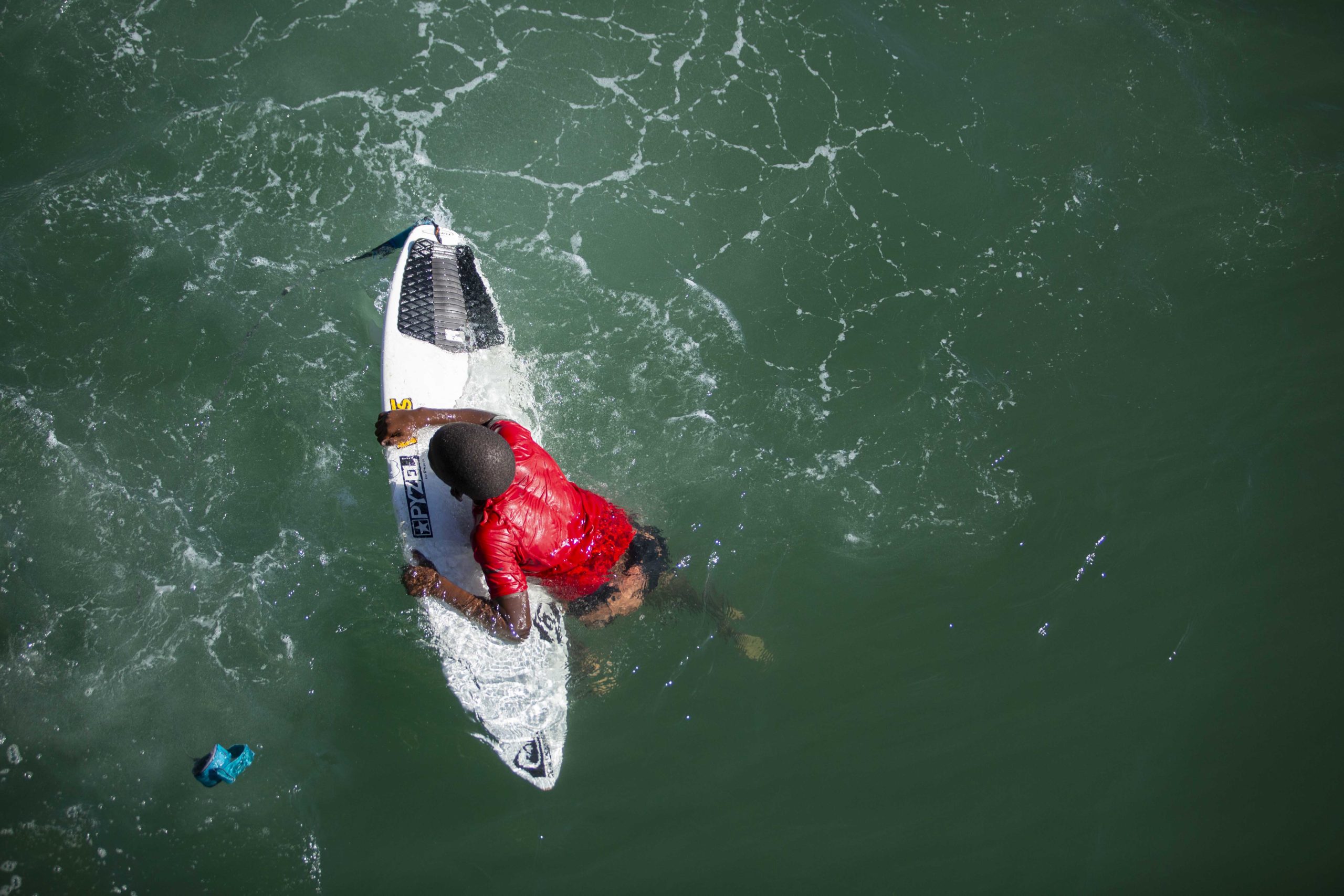
Hewitt had a similarly unexpected encounter with Pope Francis in Vatican City after a circuitous introduction by surfing legend Kelly Slater. It happened when Matias Anton, a surfer in Argentina who works for a youth organisation established by Francis long before he became pontiff, called Hewitt after seeing his work in a Slater documentary.
They discussed a partnership, but Hewitt didn’t realise the pope was the organisation’s figurehead. Only months later did it dawn on him in a moment of panic when he was invited to “Rome to meet the Holy Father”.
At the time, Surfers Not Street Children was battling to stay afloat. British Airways sponsored a flight and Hewitt met the pope. “I’m not religious, but he was so cool. I really liked him. He’s radically pro-poor and big on social justice. His foundation contributes to our programme in Tofo near Maputo. We take care of 40 kids there. When I told Kelly Slater the story about how it happened, he said he got goosebumps.”
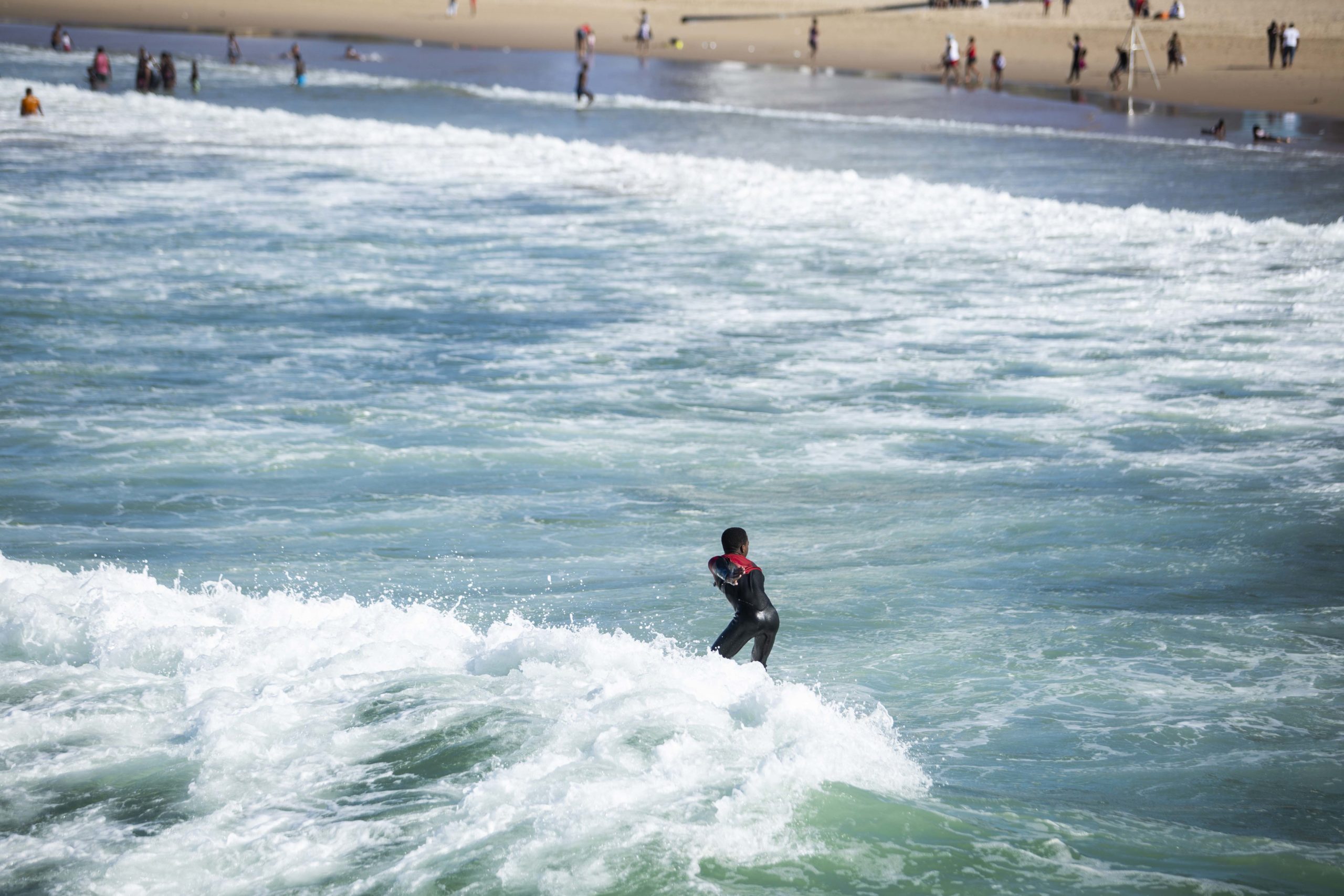
Behind the glamour
Stories like these are inspiring, but their glamour often detracts from the challenges Surfers Not Street Children faces. “We’ve done well on extraordinary things but lagged on the ordinary,” says Hewitt. “The high-profile support has been epic, but it gives the impression that we are doing so well. We run a shoestring budget and the nutrition programme we started during Covid just whacked our finances.
“We’re trying to get an army of small givers to contribute regularly, rather than rely on a few big sponsorships, although we’re very grateful for them. We get some little, regular donations, but added up they help enormously. Our proposition is to give us the equivalent of what it costs for a few blocks of surf wax or a few beers or a coffee every month – something that won’t break the bank but helps greatly.”
Mqadi sums up the importance of emphasising the mundane over the marvellous. For every poster boy like Msibi, there are hundreds more who have the potential but are unable to harness it. He turns to William Zondi, 20, who grew up on the rough streets of South Beach. The stab marks on his torso are a vivid indication of the violence.
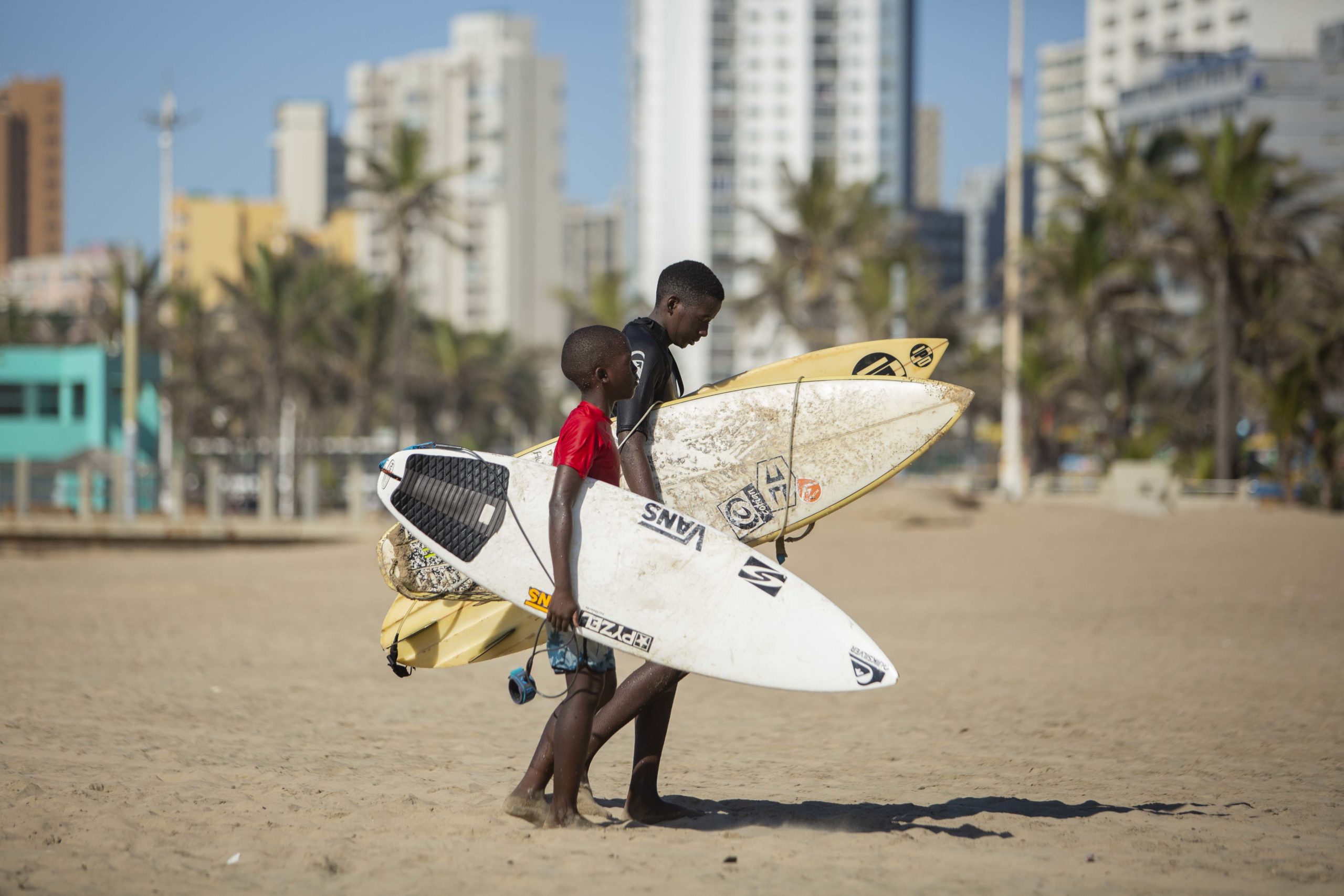
Zondi is an ace skateboarder, though his success is not in the league of Msibi’s. Every day he struggles to make a buck doing piecework and begging. But challenges aside, he praises Mqadi and Hewitt’s influence. “I would love to have a job. I hustle, but I don’t do bad stuff because of Sandile and Tom. They put me in the right place. Now I teach other kids the same.”
While he’s happy with the work he is doing, Mqadi says, he feels overwhelmed. “I’m worried about the future. We need help. There is so much unemployment and so little opportunity for the youth. We help a few, but we need support.”
Something to do
Mqadi says scores of children approach him every day at the beachfront surf shack he runs behind California Dreaming restaurant, which overlooks the promenade on Durban’s central beach.
“During the school holidays there are 70 kids a day. They just arrive here. I don’t know what they would do if I wasn’t here. They are desperate for direction. And I have to be here for them, they rely on me. I am a comfort and a consistency in their lives and I am happy for that because I am dedicated.”
The trick is teaching them valuable life lessons in a way that isn’t dull or feels like a chore. “Some of these kids don’t have direction. They just want something useful to do every day. I teach them to be honest. I teach them about morals, but you have to do it in a way that is fun, using techniques they will grasp,” says Mqadi.
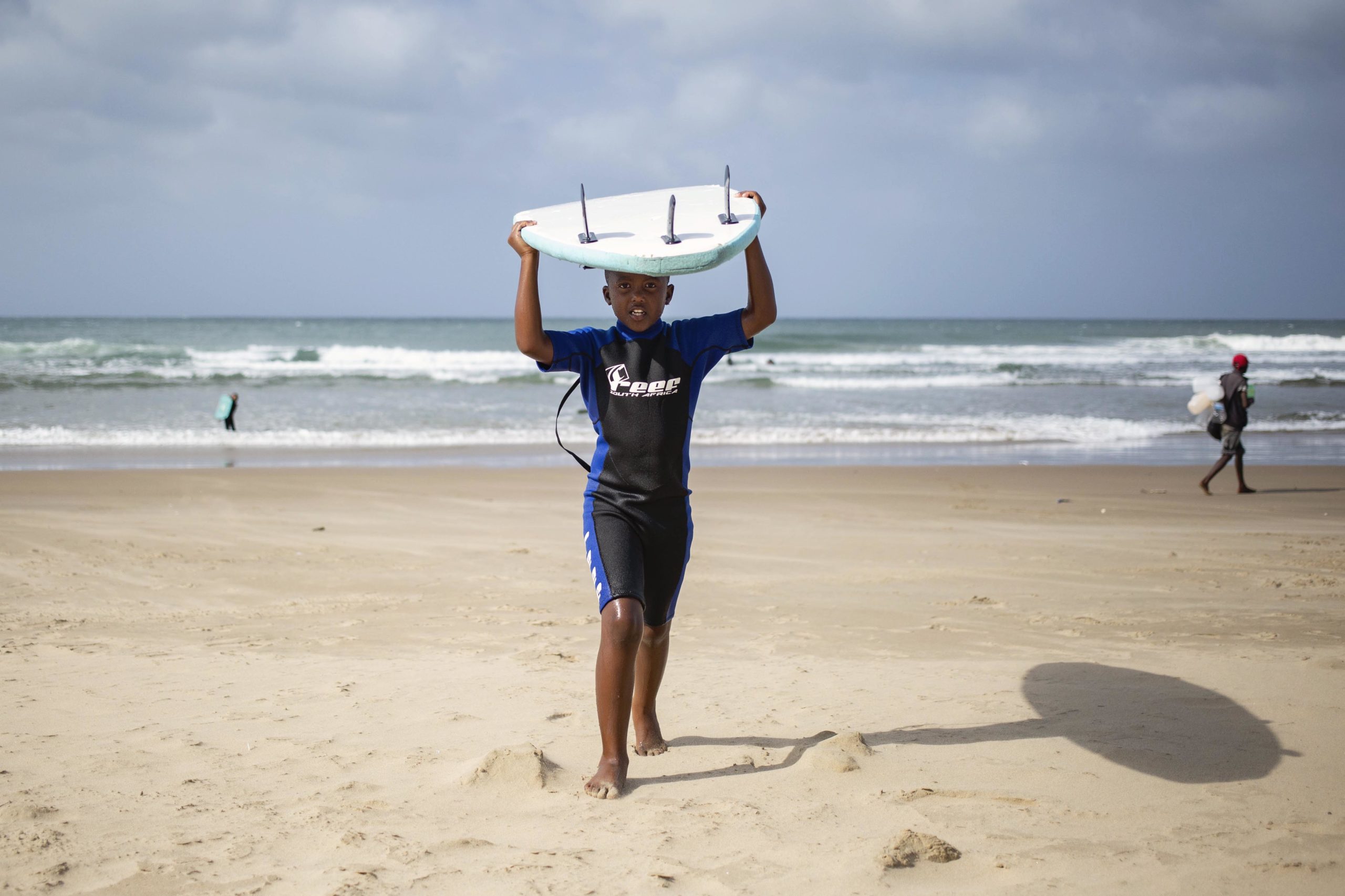
“For example, today we couldn’t surf because of the weather, so I took them fishing in the harbour. I bought some line, some hooks and some bread for bait. We collected all sorts of things for rods: palm tree branches, bits of wood, old broomsticks. It teaches them to be creative, to think out of the box.
“With fishing, you have to learn patience. They caught fish and you should have seen the huge smiles on their faces. For that moment they weren’t a burden to anyone and they weren’t in trouble. They could go home and speak to their parents with pride.
“We have to do something to help them have purpose. I am so tired of people, especially in government, talking about how they can help the youth. Actions speak louder than words.”
